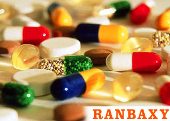 | « Back to article | Print this article |
 With hardly four weeks for patent expiry of the world's largest revenue earning drug, Lipitor, in the US, speculation is rife as to how Ranbaxy will exploit this.
With hardly four weeks for patent expiry of the world's largest revenue earning drug, Lipitor, in the US, speculation is rife as to how Ranbaxy will exploit this.
The generic products company had challenged the patent and secured a six-month exclusive right to sell a low-cost version of the $10.7 billion medicine in the US market after the expiry.
It remains to be seen how it would monetise the opportunity.
The uncertainty over Ranbaxy's ability to launch a generic version of Lipitor is caused by the absence of necessary production and marketing approvals from the American drug regulator, the Food and Drugs Administration, until now.
The FDA had put two of Ranbaxy's Indian manufacturing facilities under a regulatory scanner by stopping all product approvals from those facilities after it found some discrepancies a few years before.
The company, which had applied for marketing approval for the Lipitor generic, known by the chemical name of Atorvastatin, from one of these plants, is yet to solve this problem.
While Ranbaxy and its majority stakeholder, Japanese drug major Daiichi Sankyo, had repeatedly expressed confidence over their ability for a timely launch, reports from across the world give indications of alternate plans.
The latest in the speculation, posted on an Israel-based news website, ynetnews.com, is about a marketing deal Ranbaxy has allegedly signed with